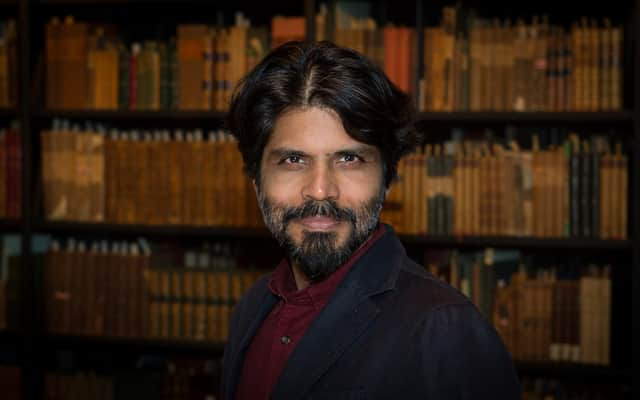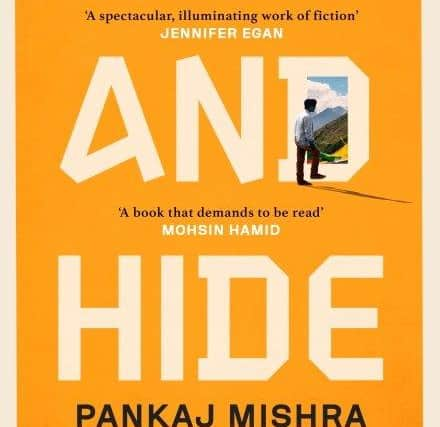Book review: Run And Hide, by Pankaj Mishra


Pankaj Mishra is now best known as a social, cultural and political commentator, and this is his first novel for twenty years. It is concerned with topics such as the new global elite and the tilting of the balance between West and East in favour of India and China, but, though it is unquestionably a novel of ideas – one that should provoke rich and lively argument - it is also, indeed primarily, a novel of character, one that , like so many truly interesting novels, draws from the deep well of nineteenth century fiction, from Stendhal, Balzac, Turgenev and Dostoevsky.
The novel is in the form of a letter addressed to a woman we first know inly as “you”. The narrator, Arun, is one of three young students at the Indian Institute of Technology (ITT), a nursery for would-be high achievers. Arun comes from wretchedly poor background; Virendra is a Dalit, member of the caste of Untouchables, Aseed is an intellectual live-wire, idolizing V S Naipaul and given to quoting approvingly one of Naipaul’s bleakest sentences (though he doesn’t realize it expresses the view of a character, not necessarily Naipaul himself). Aseed models himself on Julien Sorel in “Le Rouge et le Noir”. Julien ends on the guillotine. In the first sentence of this novel-as-memoir we learn that Aseed is in prison.
Advertisement
Hide AdThe three emerge from ITT (where they have suffered disgusting and humiliating initiation ceremonies) determined to make it. Aseed becomes a novelist , journalist, magazine editor. Virendra flourishes on Wall Street in the “Greed Is Good” years. The novel’s Gatsby, we learn on page 17, that he will fall foul of the Law and be confined in “a correctional facility” - repulsive euphemism – in Massachusetts.


Arun, more modest in his ambition, words as an editor in Delhi, then withdraws to a village in the foothills of the Himalayas where he translates novels written in Hindi into English and lives with his much put-upon , illiterate and devoted mother. It is there that he meets the “you” of the novel: Alia , a beautiful , rich, intelligent non-observant Muslim, writing a book about the new Elite. She attaches herself to Arun, first as a source of information and literary collaborator. They fall in love and live and travel together, eventually to London. Mishra makes this somewhat improbable relationship credible. Alia, unlike Arun, is at home in the new world of instant global communication.
East and West are both inflected by moral corruption . The secular liberal-socialist India of Gandhi and Nehru , tolerant, indeed approving, of diversity, has given way to Prime Minister Modi’s strident and brutal Hindu Nationalism . It is repulsive, but Arun is less surprised by the development than Aseed and Alia. “Hyper masculine bigots, unscrupulous journalists, and venal businessmen did not represent an unprecedented demonic reality to me. From what I knew of my father and society as described by Balzac and Maupassant, they seemed perfectly normal.” True, horribly true.
The world changes, not for the better, and while changing, remains essentially the same. Campaigning for justice while enjoying the sweets of London, Alia regards much with contempt. “God, these rich white men are just hopeless.. they can’t get rid of the idea even now that West is best” – even while so much of it has been bought up by India : a true and disturbing reflection.
This is a wonderfully rich and enjoyable novel. It is very much, and disturbingly, of our time, but its strength lies not so much in its examination of political and financial immorality and criminality – something that Pankaj Mishra has for years now offered in magazines like the New Yorker and the London Review of Books - as in its attachment to the deep-rooted tradtions of the European novel. In reviews for The Scotsman I have often quoted Ford Madox Ford’s claim for the primacy if the novel ai its ability to make yu think and feel at the same time. This may not be a unique quality, as Ford suggested it was. Nevertheless it has always been, and remains, the novel’s essential virtue. Pankaj Mishra’s novel does just that. Intellect, observation. memory , sympathy and imagination are all happily here. The novel can be read quickly for sheer pleasure. It is a work for our time and one that will surely be read many years on for what will then be its historical interest. So: a novel built to last.
Run And Hide, by Pankaj Mishra, Hutchinson Heinemann, 327pp, £16.99
A message from the Editor:
Advertisement
Hide AdThank you for reading this article. We're more reliant on your support than ever as the shift in consumer habits brought about by coronavirus impacts our advertisers.
If you haven't already, please consider supporting our trusted, fact-checked journalism by taking out a digital subscription at https://www.scotsman.com/subscriptions